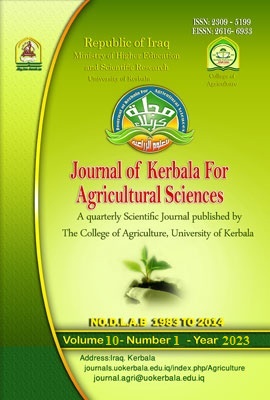Abstract
This study examined the economic aspects of small ruminant pro-duction among rural households in Iwo Agricultural Zone, Osun State, Nigeria. Using a multistage sampling technique, data were collected from 120 respondents through structured interviews. The majority of participants were middle-aged, married males with an average household size of five, and 63% had between one and thir-teen years of formal education. Small ruminant farming was the most common livelihood activity (30.83%), with 90% of respond-ents earning ₦10,000–₦100,000 monthly from secondary occupa-tions. On average, respondents had 15.2 years of experience in small ruminant production, generating ₦49,555.25 in revenue, ₦109,806.32 in total costs, and a gross margin of ₦26,524.79, with half of them achieving a medium gross margin. Regression analysis showed that gross margin was positively influenced by factors such as education level, flock size, production experience, and start-up cost. Conversely, feeding costs negatively impacted profitability. The study concluded that small-scale ruminant farming is a viable and profitable enterprise that contributes to income generation, pov-erty reduction, and food security in the area. It recommends the promotion and support of small ruminant farming as a sustainable income source for rural communities.
Keywords
cost-benefit analysis
Economic performance
gross margin
rural households
Small ruminant
